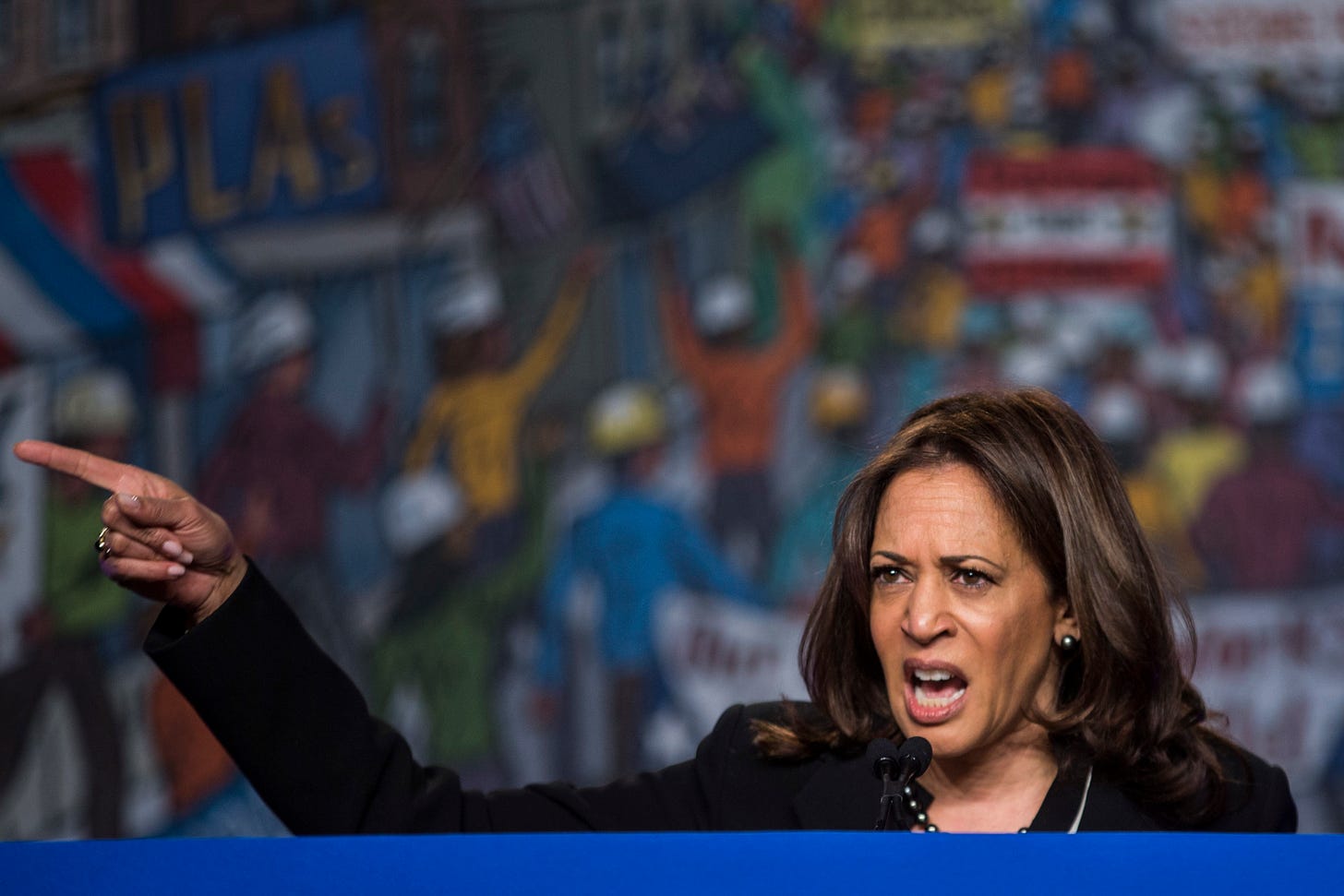Why Does Kamala Harris Hate the Constitution?
Her policy proposals all start with violating its terms.
Kamala Harris formally launched her presidential campaign in January. Nine months later, she’s finally found her reason for running.
In her campaign kick-off speech, Harris posed a question that her campaign would seek to answer:
We are here because the American dream and our American democracy are under attack and on the line like never before. We are here at this moment in time because we must answer a fundamental question. Who are we? Who are we as Americans? So, let’s answer that question. To the world. And each other. Right here. And, right now.
Her answer appears to be that we are a people with no regard for our founding principles. Because, based on her proposals, we can’t respond to the attacks on the American dream without … attacking the Constitution itself?
In April, Harris promised “executive action” on federal firearms policy by day 101 of her administration. Rather than focus on enforcing existing statutes, which the Justice Department is loath to do, Harris gives Congress 100 days to pass new laws before implementing them herself.
Those 100 days are a thin mask of constitutionality hiding unchecked executive power. Consider what would happen if, on the 99th day, Congress sent a a compromise gun bill to Harris’s desk that she found lacking. Would she stand by her promise, or would she wait one day to issue her “executive action?” What about the 98th day, or the 97th?
If Harris believes she holds legitimate power to solve a public policy problem, delaying for three months is irresponsible. The ticking-clock gimmick reveals that the threat is hollow, or she knows the power she’s claiming is illegitimate—or both.
At last week’s Democratic debate, moderator David Muir reminded Harris that former Vice President Joe Biden has warned against the limits of executive power, specifically in regards to gun control, and asked her for a response.
Harris doubled down: “Well, I mean, I would just say, hey, Joe, instead of saying, no, we can't, let's say yes, we can.”
Harris has also promised executive action on drug prices if Congress doesn’t act within the first 100 days of her administration. In her bountiful munificence, she has left Congress the power to determine which days it spends on guns and which days it spends on drugs.
Harris was right that American politics faces new and daunting threats —but she doesn’t seem to count the politicization of law enforcement among them. She hasn’t even won the nomination yet, but she’s already promised that under her presidency, the Justice Department will prosecute President Trump and opioid manufacturers.
Harris’s campaign website also promises that, if elected, “she will immediately reinstate DACA and implement DAPA to protect DREAMers and their parents from deportation.” The DAPA program, which provided rights to illegal immigrants who gave birth to American children, was blocked by the courts, suggesting the program was on shaky legal or constitutional grounds. (The Trump administration has since rescinded the policy).
As for DACA, President Obama demurred from unilateral action during election season, insisting “I’m president, I’m not a king… the president of the United States, not the emperor of the United States… There’s a limit to the discretion that I can show because I’m obliged to execute the law…. I can’t just make the laws up myself.”
The Obama administration politely waited until after the 2012 elections to implement DACA by executive order, using a power the president previously admitted he didn’t have. Harris is testing the proposition that that power grabs are much easier when you don’t deny them beforehand.
In an even more explicit promise to arrogate legislative power for herself, Harris’s proposal for protecting abortion rights includes a pre-clearance requirement modeled after the Voting Rights Act. Under such a system, “states and localities with a history of violating Roe v. Wade obtain approval from her Department of Justice before any abortion law or practice can take effect.” The Voting Rights Act was passed by Congress using power derived from a specific clause in the 15th Amendment. But legislation is hard and constitutional amendments are harder, so Harris would rather just skip those steps.
She also promises “executive action” to “ban the box,” prohibiting employers from asking job candidates about prior convictions. That’s sure to hold up in court.
Harris’s plan to force employers to obtain “Equal Pay Certifications” from the government isn’t quite so stridently unilateral. “Harris won’t wait for Congress to act,” announces the campaign site, “she’ll take executive action herself”—but with no time table.
At least she has one agenda item on which she’ll deign to work with Congress: a plan to invest $12 billion in minority-owned businesses. Going through normal legislative channels? Does she even really care?




